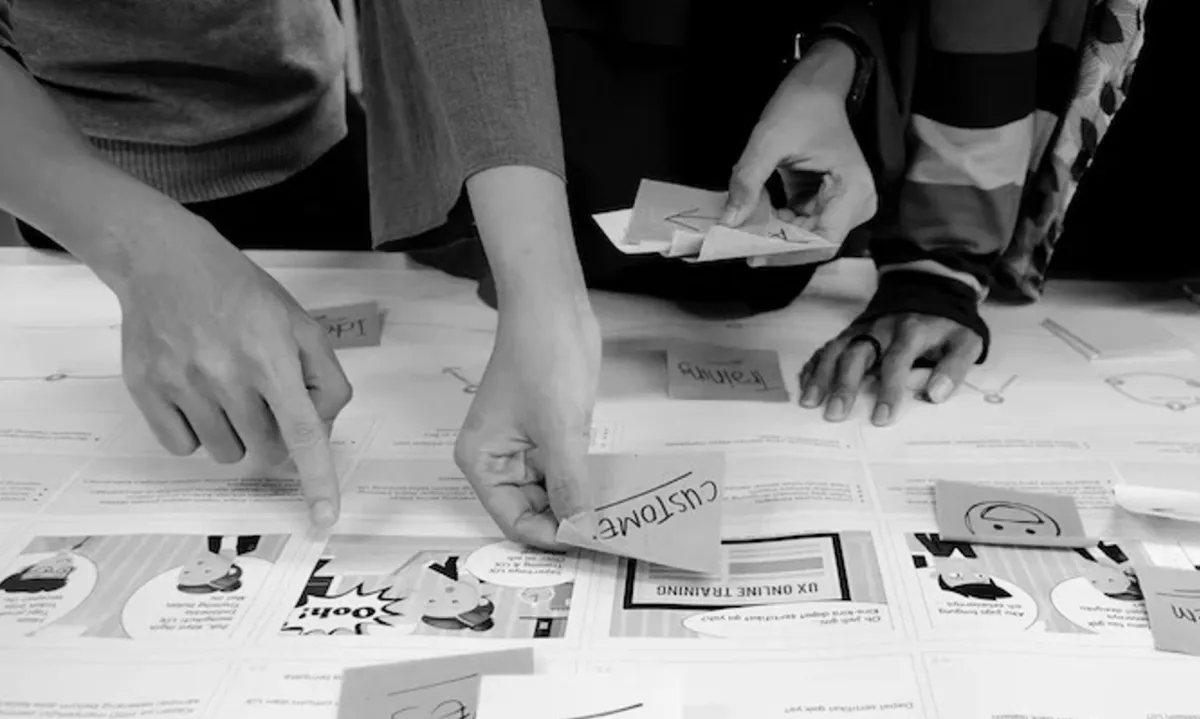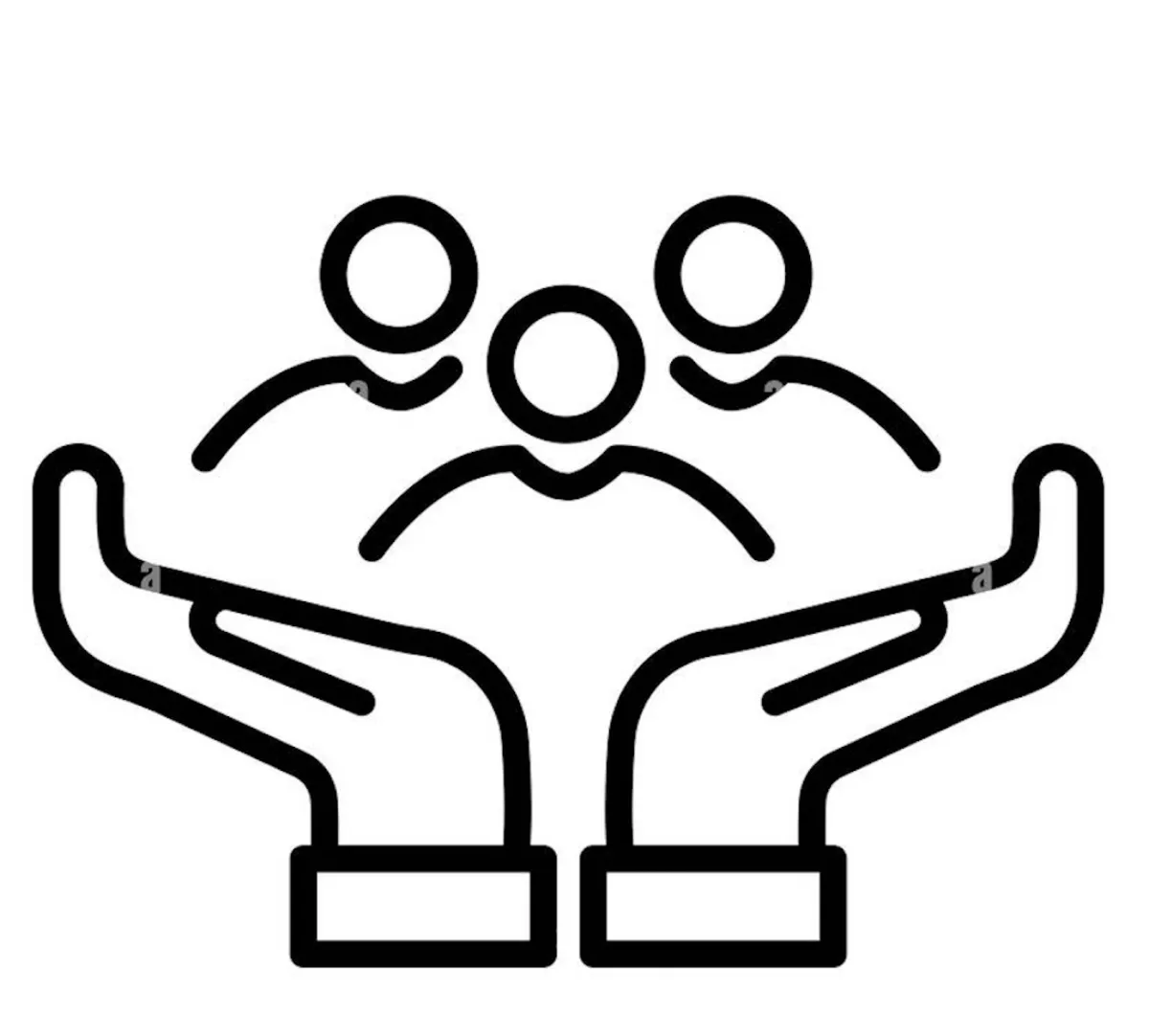Créer des expériences clients mémorables,
grâce à des équipes engagées
Les expériences les plus mémorables naissent des émotions.
Chez [back of the house], nous aidons les entreprises de service à se reconnecter aux émotions pour créer une culture de service incarnée et durable.
Qui sommes-nous ?
Nous [re]travaillons votre expérience client et accompagnons vos équipes à la délivrer
Il y a quelques années, une phrase entendue lors d’une conférence a changé notre vision du service : « Les expériences liées aux émotions sont bien plus mémorables que celles qui ne le sont pas. »
C’est avec cette conviction que nous avons fondé [back of the house] : un collectif d'experts passionnés, aux parcours différents, réunis par une même mission → placer la relation humaine au cœur de l’expérience.
Ateliers Parcours clients / Moment de vérité
Formations avec comédiens
Coaching pour ancrage durable


Notre collectif d'experts

Philippe Boutié

Jessica Bourset
- Le Galès

Luc Gentil

Dina Magnes

Thomas Silvie

Milos Zaric
Nos services

Réflexion stratégique
Nous travaillons à vos côtés pour clarifier vos ambitions en matière d’expérience client et transformer cette vision en un cap clair et mobilisateur pour vos équipes.

Analyse et diagnostic
Nous analysons vos parcours clients et collaborateurs pour souligner les moments clés qui déterminent la satisfaction et l’engagement, et identifier les leviers les plus stratégiques pour renforcer vos expériences.

Co-construction
Nous co-construisons avec vos équipes une expérience client et collaborateur différenciante, en définissant ensemble vos promesses, attitudes, rituels et standards de service.

Formation et développement
Nous concevons et animons des dispositifs de formation engageants, intégrant apports théoriques et mises en situation avec comédiens-formateurs, pour transformer les intentions en comportements durables.

Coaching et accompagnement managérial
Nous accompagnons vos managers et vos équipes par le coaching, pour les aider à prendre du recul, dépasser les défis relationnels et renforcer leur leadership au service de la performance et du bien-être.

Accompagnement opérationnel et pérennisation
Pour ancrer durablement les expériences, nous vous aidons à les traduire en actions concrètes sur le terrain : animation de projets, mise en place de rituels managériaux, création d’outils pratiques et suivi opérationnel.
Retours clients

“Travailler avec [back of the house] est une expérience que je recommande … Thomas et son collectif d'experts ont challengé mes équipes et moi-même sur l’aspect émotionnel dans la relation avec nos clients”
Stéphane Lopez, directeur de Servair Nairobi (Kenya)

La formation proposée par [back of the house] sur le parcours client est innovante et a permis à nos équipes de s’approprier le sujet. Chaque groupe de travail a ainsi pu travailler sur leur propre vision du parcours client et aussi sur le parcours collaborateur.
J’ai adoré que les idées viennent de nos équipes et que l’ensemble des bonnes idées soit mis en place et porté par elles”
Didier Gireau, directeur du Château des Tourelles (France)
FAQS
Quelle est la différence entre parcours client et expérience client ?
Le parcours client décrit les étapes concrètes par lesquelles passe un client (réservation, accueil, paiement…). L’expérience client va plus loin : elle intègre les émotions, les attentes et les souvenirs que le client garde à chaque étape. Nous travaillons avec vous sur les deux dimensions pour transformer les moments-clés en leviers de satisfaction et de fidélisation. Nous faisons de même lorsque nous travaillons avec vous l'expérience collaborateurs.
Pourquoi impliquer les collaborateurs dans la définition de l'expérience client ?
Parce qu’ils en sont les acteurs principaux. En les faisant participer dès la conception, ils comprennent mieux les enjeux, s’approprient les attitudes attendues et deviennent ambassadeurs de la nouvelle expérience.
En quoi vos formations sont-elles différentes ?
Nos formations sont expérientielles : elles combinent apports théoriques, mises en situation avec comédiens-formateurs, outils comme PCM® ou Lego® Serious Play®, et échanges collectifs. Cela permet de créer un véritable ancrage, bien au-delà d’une formation classique descendante.
Combien de temps faut-il pour transformer l'expérience client ?
Tout dépend de l’ambition et de la taille de votre organisation. Certains projets nécessitent quelques ateliers pour définir une promesse client et des rituels, d’autres demandent plusieurs mois pour embarquer l’ensemble des équipes et ancrer les nouvelles pratiques.
Pouvez-vous accompagnez aussi bien des dirigeants que des équipes opérationnelles ?
Oui. Nous intervenons auprès de toutes les strates : comité de direction, managers, équipes en contact client et équipes en support. Chacun a un rôle spécifique à jouer dans l’expérience client et dans l'expérience collaborateur. Et nous adaptons nos approches en fonction.
Comment mesurez-vous l'efficacité de vos interventions ?
Nous définissons avec vous des indicateurs en amont (satisfaction client, taux de fidélisation, engagement collaborateurs, évaluation des pratiques managériales…). Puis nous mettons en place des suivis qualitatifs et quantitatifs pour mesurer les progrès et ajuster si besoin.

















